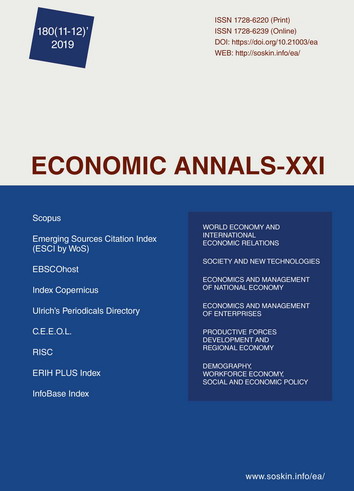Labour productivity management: factors of growth, the role of social and labour monitoring
Labour productivity management: factors of growth, the role of social and labour monitoring
Author(s): Yuliya Vertakova, Irina Maltseva, Yuliya ShulginaSubject(s): National Economy, Labor relations, Economic development, Human Resources in Economy
Published by: Institute of Society Transformation
Keywords: Labour Productivity; Social and Labour Monitoring; Management; Economic Development; Factors Of Growth;
Summary/Abstract: Labour productivity is among conventional tools of sustainable development and a subject of modern research in economic and social sciences. Systematic work to stimulate its growth is carried out through the centres of competence and labour productivity growth created in a number of countries (the overview of which is given in our paper). At the same time, recent research works frequently highlight the importance of social factors of growth along with technical ones. Attention is paid to the introduction of lean production practices and programmes for organizational culture transformation. Estimation of labour productivity faces a number of difficulties at both macro and micro levels. They are investigated and addressed in the current paper. The main purpose of the paper is to identify factors having the greatest impact on the level of labour productivity and the way of their estimation in different countries on the basis of a comparative analysis of their labour productivity management and monitoring policies.As a part of the study, we conducted a comparative analysis of Russia and a number of foreign countries in terms of labour productivity (namely, USA, G7, European Union-28, Japan, and China). The dynamics of GDP per hour worked and GDP per employee as the indicators of labour productivity for our comparison has been used. It is calculated that labour productivity in Russia is about 2 times lower than in the developed countries. Models that allow different countries of the world to achieve a high level of labour productivity have been singled out based on the conducted research It is concluded that with regard to the Russian national mentality, a rational model of labour relations should be based on three unified systems: the tariff, the resultant, and the profit-sharing one.
Journal: Економічний часопис - ХХІ
- Issue Year: 180/2019
- Issue No: 11-12
- Page Range: 173-182
- Page Count: 10
- Language: English

